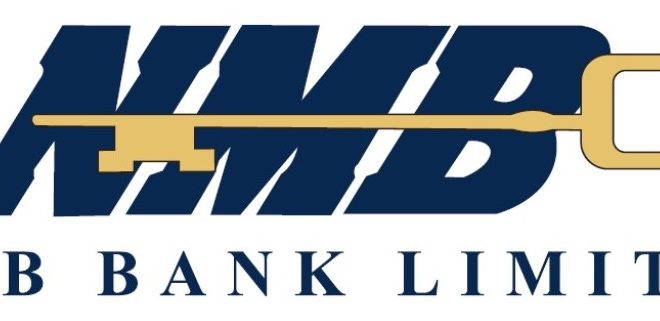NMB sits on US$57m lines of credit for exporters
NMB Holdings is sitting on US$57 million lines of credit while it is negotiating for an additional US$25 million with two different funders, with the funds largely focused on supporting exporters.
Group chief executive, Mr Gerald Gore, told shareholders at an annual general meeting that the bank had been successful in mobilising lines of credit to support companies in key economic sectors such as agriculture.
“So far, we have about US$57 million of lines of credit, and we are talking to two additional funders. We are at different stages; one is at the documentation stage, and the other is a recent due diligence exercise. In total, we have about US$25 million.
“All the lines of credit we are mobilising are put into exporters, companies that generate exports, because that helps when they want to repay the lines (of credit),” he said, giving a trading update for the five months to May 2024.
Mr Gore said while the focus was largely on the exporters from across all the sectors of the economy, there is strong demand from the agriculture sector.
“A lot of the funders actually like to fund agriculture because the sector supports job creation, and for Zimbabwe, it is the backbone of our economy. If you support agriculture, it feeds into a number of value chains.”
The bank had been pursuing partnerships, that were key to delivering certain things where the bank has no capacity.
“Partnerships are key because there are certain instances where we have no capacity to do certain things, and instead of building that capacity, we look for like-minded partners who then give us access to that capacity.
“Currently, we are working with Rabobank, which is a Dutch bank with a strong focus on agriculture. We have a three-year partnership where they are helping us transform into one of the best food and agriculture banks in the country.
“We have identified a number of value chains where we want to support our customers — literally the entire chain.
They call it from farm to fork, and we are working with Rabo on that,” he said.
For the trading period under review, total revenue was $1,3 trillion, which represents a 203 percent increase compared to the same period last year.
Mr Gore said the revenue was largely driven by transactional income and the lending business, and most of that revenue is now US dollar-denominated.
He said the bank had a balance sheet of $1,7 trillion, and 92 percent of that was in the US dollar. The group also has a microfinance division that started last year.
Mr Gerald Gore
Mr Gore said the loan book currently sits at slightly over US$4 million as they are lending exclusively in US dollars.
“They have about 17 000 customers and are growing, and they are now contributing slightly under 10 percent to our profit and tax. The NPL ratio is at 0,73 percent and under control; our capital adequacy ratio is at 28 percent, again within acceptable limits because the minimum is 12 percent.”
The group also set up NMB Properties last year and launched it in May 2024 with an initial capital of US$3,5 million.
Mr Gore said the capital will be increased to US$10 million to undertake a pipeline of projects that are currently being worked on, which will keep the property portfolio busy for the next two years.
“They have done a number of projects and have already completed 26 cluster units in Marlborough, and they are currently working on another project in Marlborough of 18 duplex units.”
The group adopted two strategies two years ago that focused on building the core business, which is the banking business, which involves traditional lending in terms of its intermediation role.
The second part was the transactional business supported by the digital platforms, where the bank sought to build capacity to raise credit lines as most companies are starved of long-term funding.
“We also sought to go to international markets to raise long-term funding to support the funding requirements of our customers and also looked at broadening our reach without building brick and mortar.
“So we adopted an agency banking model where we can increase our distribution without necessarily building branches, and then the last part of the core business was looking at value-added services like bank assurance and money transfer, which are good in terms of mobilising foreign currency.”
Mr Gore said the bank also looked at diversification, where it sought to build capacity in other areas in order to diversify revenue streams and looked at areas like technology, property, microfinance, and general geographical spread in terms of service offerings.
“When we started, we just had the bank as the main subsidiary, but today we have a property subsidiary, NMB Properties, and a technology subsidiary, Xplug Solutions.
“In addition, we have microfinance, but the bank still remains the main contributor to revenue.”-chronicle










